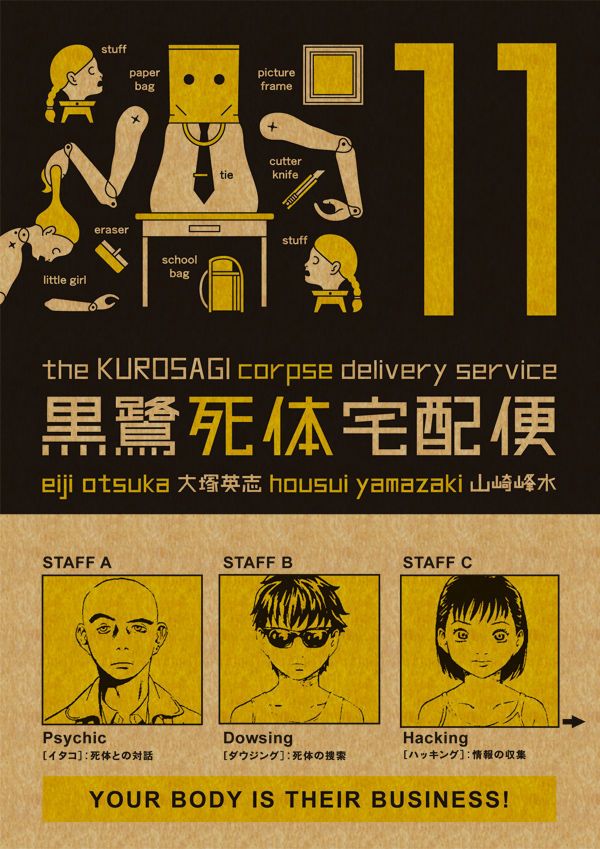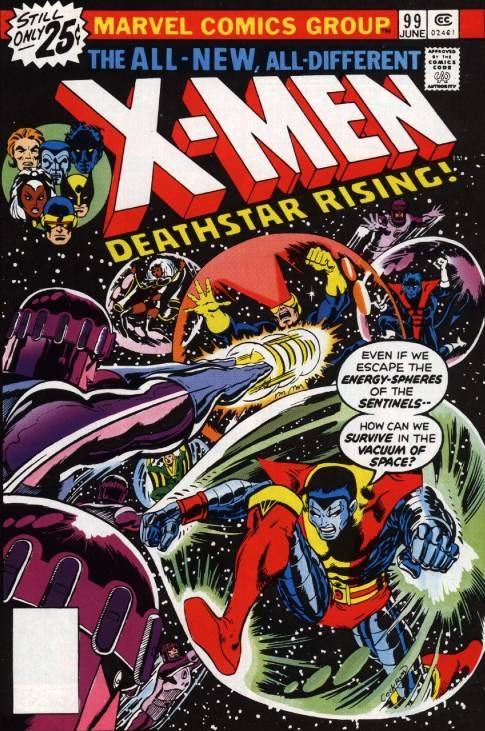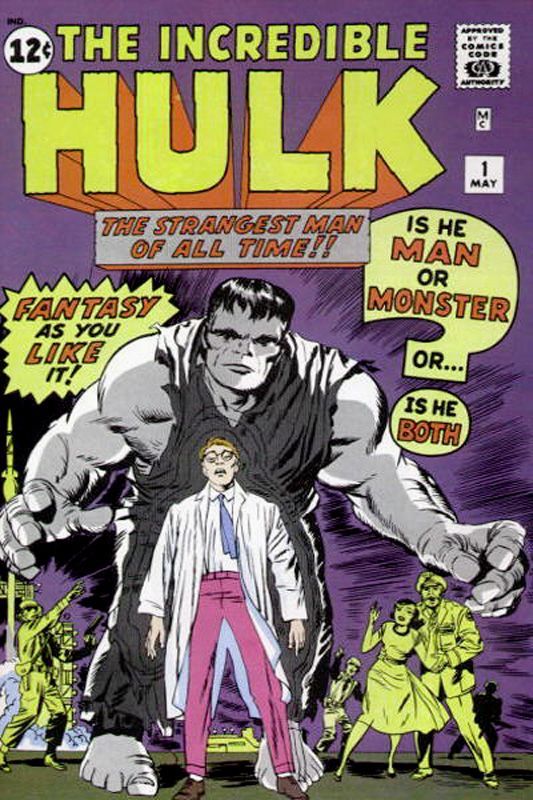Pain, anxiety, joy, love, disgust, fear, enthusiasm, isolation, mistrust, desire... If humanity is a condition, then adolescence is a disease, in the most literal sense of the word. Dis-ease. The absence of ease. In fact the one feeling that hardly ever gets thrown around is ease. For most people, growing from a child into an adult is a physically turbulent, (even traumatic) process. With the hormones surging and everything changing, it doesn't help a bit that the world begins to see people differently at this age, expecting more adult behaviors and capacities, all the while taking away the liberties and excuses of childhood. For some it is merely a slightly awkward phase, for others a painful wrench. For nearly everyone it is difficult to be a teenager, and some of us can definitely look back and know that life will never be that bad again.
At the moment, I'm reading two books (apart from my monthly comics), only one of them is a comic book. In volume 11 of the Kurosagi Corpse Delivery Service, the brains behind the team has a revelation; All of them experienced death at a young age, and this might be a reason for their strange talents. It was a realization that gave the book added depth. The team's work with corpses is an expression of the irrevocable changes they experienced in their pivotal years, and while it may not be at the forefront of the story on a daily basis, I can see now that this is a comforting metaphor for the emotional pain that we internalize as we transition into adulthood. The other book that I'm reading is called Columbine, a nightmarishly comprehensive, level-headed investigation of what happened in 1999 at Columbine High School. The book brings home again and again that none of the teenagers at this school were adults with the tools to deal with what was happening. At the time, I remember hearing a lot of talk about loners and goths, but the perpetrators were just regular students, with friends and families... nothing special, nothing really remarkable, just teenagers, really destructive teenagers. Please don't think that there is ANY excuse their actions, but it's important to understand that they weren't the outrageous-loner-goth-satanists people seem to want to paint them as, they were just people. Obviously I'd encourage anyone who's interested to read the book themselves. Being a teenager is crazy, for some much, much more so than for others. It makes it that much more important to support any and all healthy, harmless outlets for that insanity.
Sometimes I just hate life. It's all too bloody much. While the horrible feeling of being overwhelmed can hit at any time, it is never more true than during adolescence. Not only is the world a crazy place, but there are the hormonal, growth spurts, and worst of all the feeling that while we might be nearly adults, we really don't have any actual power or clout. I remember people telling me that I was lucky, that this was being a teenager was "the happiest time of my life." Apparently I had freedom without responsibility, which they envied... What they weren't acknowledging (or remembering from their own youth) was that I also had the brain of a completely insane person, as the hormones charged through my body and everything started changing. The hormonal changes that teenagers go through is a kind of mild (to strong) psychosis. While adults around me told me how happy I ought to be, I struggled with a life that felt more like an out-of-control freight train than a joyride. None of this is to say that I had no fun, but that fun was extremely hit-or-miss, because with no self-awareness or ability to understand what was going on, my mood swings were as confusing as the massive changes that my body was going through. I am eternally grateful that the helpfully clueless adults around me weren't my only source of support. With no way to articulate my feelings, I sought comfort in my vices, and comic books came to the fore in a way that they never had before.
Discovering the Uncanny X-Men was bound to be a pivotal moment in my life, but discovering them during adolescence sealed the deal. Here were teenagers, dealing with their own bodies rebellion against them. These uncontrollable changes affected their lives, people's perception of them, and how they were going to live. Similarly, we were all changing, growing bodies which would shape the way the world perceived us. I wasn't ready, I didn't understand the feelings that I was having, and it all felt much bigger than anything I could verbalize to anyone around me. While none of us were developing super powers or saving worlds, the drama of this metaphor made it that much more appropriate to our hormonally-charged emotional brains. Only world-changing modern gods like superheroes could echo our pain. In retrospect it can seem outrageous to make this comparison, but when we were deep in the throes of it, being a teenager wasn't that different from watching the world change. How perfect that comic books exist. If not for the outcast mutants with their unmanageable powers, or the lonely victims of scientific experiments gone wrong, we might be all alone. Instead we have these wild, amplified versions of our teenage selves to identify with and find solace in.
Without the outlet of comic books, I honestly don't know where I'd be. I loved to draw, and I used to copy the poses of the super heroines for my life-drawing studies. The drawing calmed me and comparing my own body to those comic book heroes helped me to see the changes in myself more clearly. I wasn't turning into a monster, just growing into an adult, no matter how strange it felt. As the changes in my body took over and the familiar dropped away, back then, (with no internet or online community to discuss this with,) I had no idea that these feelings were so common and so comic books were a salvation of sorts, a lifeline. The kind of novels and books which might assuage a freaky, comic book-loving teenager made me sick with derision and disbelief. I was too close to it to understand how prosaic my problems were. Instead I wanted to understand how monumental it all felt. I needed a big story to relate to, and what could be bigger than super heroes?
The impulse to share our pain, particularly while going through the dichotomy of adolescence, is pretty common. When internalized (as it so often is in women, who traditionally have been discouraged from overt demonstrations of negativity), it exhibits itself as eating disorders, cutting, gossiping, and any number of nasty, little, secret vices. Externalized it can be as benign as tagging, escalating into bullying, intimidation, and even large scale high school violence. These negative, reality-based outlets of teenage frustration are rarely productive, rarely nurturing or helpful. Meanwhile, the decision to read comic books and find community and understanding through the hyperbole of super hero fiction is derided and unsupported by parents. Instead, parents ought to be buying their children comic books, encouraging them to find solace in the world of super powered grandeur. While Batman might sulk and mope, he is decent, kind and generous. Spider-Man is always going to be a smart-mouthed little punk, but he's also always going to be damn responsible about how he uses his powers. Even the Hulk, totally incapacitated by his berserker rages, is loving and protective towards the weak and vulnerable. These are beings struggling with their lot in life, but simultaneously showing us how much easier it is to manage it all if we can live by a moral code, and like them, are willing to care for others as we care for ourselves. Originally Superman simply stood for truth and justice and that seems like a pretty good place to start.




